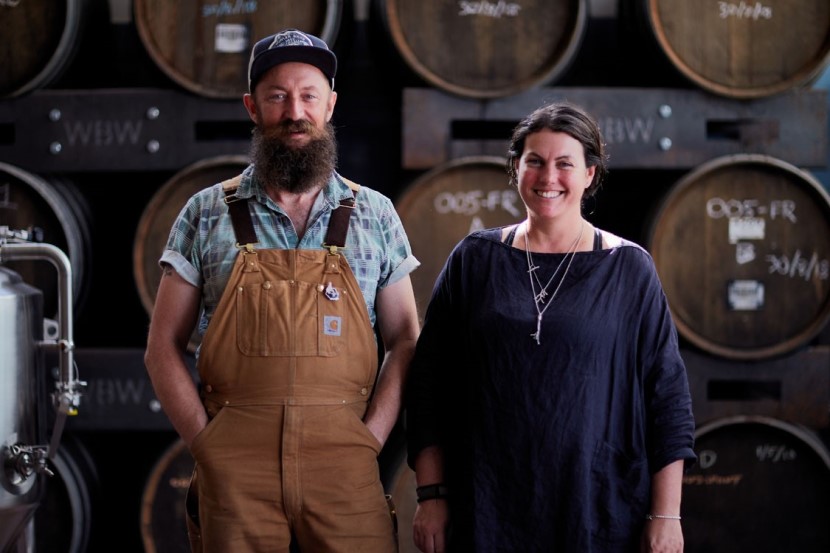
In a thrilling turn of events, a visionary young couple is set to breathe new life into their remote, economically struggling community in East Gippsland. Chris and Gab Moore, the dynamic duo behind Sailors Grave Brewing, have unveiled ambitious plans to expand their successful brewery and spearhead the creation of a local malt house industry. With their unwavering determination and innovative ideas, they are poised to become the saving grace for a region marred by economic decline.
Just seven years ago, Chris and Gab converted a century-old buttery factory on the picturesque banks of the Snowy River in Orbost into a thriving and distinct brewery and tap-house. Now, they are on the cusp of realizing their dreams as they prepare to build a farmhouse-style brewery destination on their expansive 80-hectare property at Point Ricardo, nestled between Marlo and Cape Conran.
Dubbed "Dunetown," this extraordinary site will blend innovation, tourism, and hospitality into an unprecedented experience. At its heart lies a beer hall inspired by the local slatted barn shed vernacular, a distinctive architectural feature of the area. Additionally, a captivating Drunken Botanical Garden will play host to year-round events, further enhancing the allure of the precinct.
The ambitious project encompasses an array of exciting features, including upgraded brewing facilities and a pilot malting plant, backed by Food and Fibre Gippsland and the Latrobe Valley Authority. The couple's vision is for the malting facility to evolve into a commercial social enterprise, processing locally grown grain to meet the demanding needs of Victoria's brewing and food sectors while also housing a corn whisky distillery.
However, Chris and Gab's aspirations extend far beyond traditional business goals. Their mission is to incorporate regenerative farming and circular economy practices, utilizing biomass waste reuse, water treatment and reuse, heat capture and reuse, and even exploring the possibility of establishing a local energy micro-grid that would supply energy back into the community.
Chris passionately explains, "Breweries are good for the circular economy because they can contribute to other industries with their waste product. We have those aspirations. We will reuse all our wastewater for washing down. We produce a lot of heat and carbon dioxide, which is great for greenhouses. We are really open to using our waste on-site for other enterprises. We will use the spent grain for cows on the farm, we would love to do compost, and we have approval from the EPA to potentially use it for biofertilizer. It is one of those economic win-wins."
The magnitude of their undertaking has not come without challenges. The Dunetown project secured a remarkable $2.35 million bush fire recovery grant for economic development, but the Moores will need to contribute an additional $3 million to bring their grand vision to fruition. Undeterred, they are prepared to put everything on the line to ensure the project's success. Their unwavering commitment stems from their desire to create an economic recovery opportunity in the region, particularly with the decline of the local timber industry and falling visitor numbers.
Chris reveals the stress they face, saying, "It has been quite stressful. We have to borrow an enormous amount more than we thought to fulfill the project. We are putting everything on the line, everything. But the amount of money is daunting, and what we will create is amazing. The dream in regional areas is that the kids grow up, see the world, and return. You have to have things that make people want to come back, so there are jobs and exciting things for people to do."
Gab emphasizes that their venture is not solely focused on job creation but on transforming.

